From Our Mailbox: Advancing MDG3
Posted on November 1, 2011 .
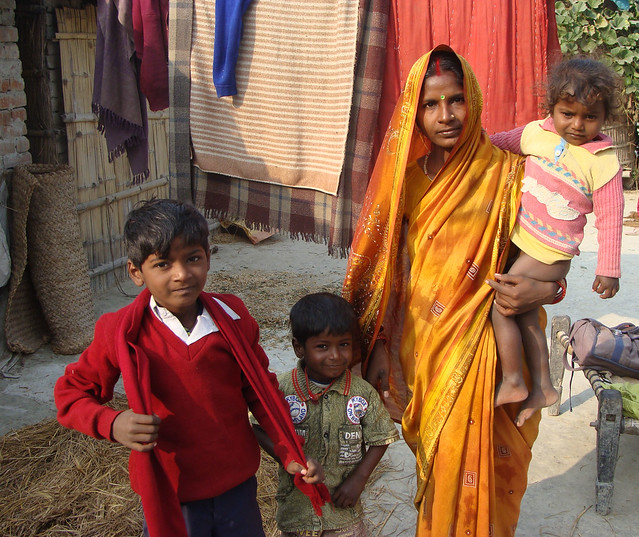 Advancing gender equality means a shift in thinking — from seeing boys and men as part of the problem, to including boys and men as part of the solution. (Credit: Sujoy Dhar/IPS)
Advancing gender equality means a shift in thinking — from seeing boys and men as part of the problem, to including boys and men as part of the solution. (Credit: Sujoy Dhar/IPS)
Dear Editors,
Thanks for the story on working with males and females on gender equality.
You may also be interested in work that ICRW has done in this area. We developed and evaluated a program called “Gender Equity Movement in Schools” that is now being scaled up to 250 schools in Mumbai. Additionally, the project team has traveled to Vietnam for discussion on adapting the program to the Vietnamese setting.
…
Ellen Weiss
Senior Technical Advisor
Research Utilization and Development
International Center for Research on Women
We love hearing from you! Send us your comments, questions, examples and ideas for making the world more gender equitable: mdg3 [at] ips [dot] org.
Dispatch from Kibera, East Africa’s Largest Slum
Posted on August 19, 2011 .
Photo Essay by Aline Cunico
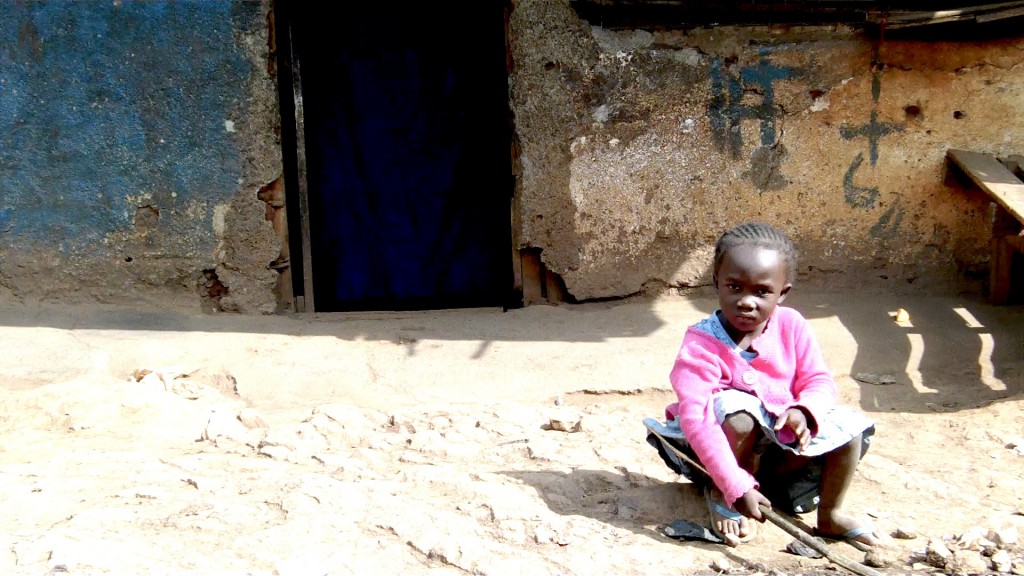 (IPS/Aline Cunico)
(IPS/Aline Cunico)
Considered one of the biggest slums in the world, Kibera is Nairobi’s–and East Africa’s–largest urban settlement. Over one million people struggle daily to meet basic needs such as access to water, nutrition and sanitation. In this community lacking education and opportunities, women and girls are most affected by poverty.
Measuring Machismo
Posted on August 10, 2011 .
By Eva Allen
Sandwiched in the middle of Central America, with a population of just under six million and a heavily agricultural economy, Nicaragua remains the poorest country in Latin American and the Caribbean after Haiti with a Human Development Index (HDI) ranking of 115. Yet, in the 2010 World Economic Forum (WEF) Global Gender Gap (GGG) Report, it ranks at 30 of 134 countries in terms of gender-based disparities, joining a top 30 club including equality champions Iceland and the Scandinavian states, and wealthy nations Australia, the US, and the UK. The report’s message is clear - bulging state coffers are not the sole prerequisite for establishing frameworks for fairness and gender equality.
(more…)
Afghanistan, The Worst Place To Be A Mother Or A Child
Posted on July 16, 2011 .
In spite of U.S-led military invasion since 2001 to bring “enduring freedom” and democracy, about 50 women die in childbirth each day in Afghanistan; one in three is physically or sexually abused, and the average life expectancy of women is 44 years.
The Alarming Violence against Northeasterners and Women in India
Posted on April 27, 2011 .
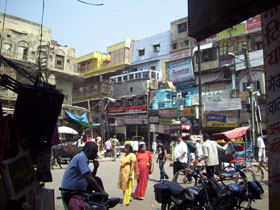
Streets are not safe for women, especially in poorer neighborhoods.
By Karen Ma
When I first arrived in Delhi two years ago, I noticed a rather disturbing tendency among most waiting drivers, street salesmen, or household guards. They would leer at my Asian women friends and me when we strolled past them on quiet residential streets. Male shopkeepers and auto-rickshaw drivers would smile insinuatingly or make snide remarks when I visited local markets. I had trouble understanding the source of this unwanted attention, especially given that I’m a middle-aged mom with a teenage son and also dress conservatively. Okay, I’m a Chinese-American, have slanted eyes and look visually different from the locals. But is this enough reason to draw such reactions? (more…)
Japan must stop nuclear power
Posted on April 18, 2011 .
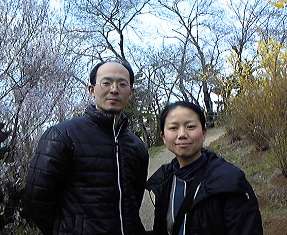
By Ayako Oga
I lived in Okuma-machi, a hamlet in Fukushima prefecture, which is just 6 kilometers from the now crippled Fukushima Daiichi nuclear power plant. It was a beautiful and quiet area with a close knit community that was a mix of both young and old people. Naturally, all our lives have changed drastically after the huge earthquake hit on March 11. The most difficult thing to comprehend and accept is the high radiation contamination in our area that has made it starkly clear to me that I will never be able to return home. It’s also difficult because we had just built a new home and I was buying new curtains and plants for the garden when this tragedy struck. My husband and I are still assessing the situation while we now live with my parents in Tokyo. (more…)
Nepal`s single women instigate much needed change
Posted on March 7, 2011 .

By Lily Thapa.
Director and founder of Women for Human Rights, working to support single women who have lost their husbands.
When my husband died I was 29 years old with two young children. I was educated and from a professional middle-class family in Katmandu, the capital of Nepal. My husband was of similar background.
But with his death I realized for myself that education could make inroads into a society only up to a point. In Nepal which is mostly a Hindu society, deep-rooted religious traditions, some of them blatantly discriminating against women, are difficult to change. And this is what I faced, an experience so traumatic that I was jolted into working for change.
(more…)
Meeting Nobuko Kan–wife of Japanese prime minister, Naoto Kan
Posted on January 14, 2011 .
By Suvendrini Kakuchi

There was a buzz of excitement at the Foreign Correspondent’s Club of Japan that invited Nobuko Kan, wife of the Japanese Prime Minister, Naoto Kan, to speak to the press. After all, as First Lady of the country, her comments and opinions are important, not only for learning more about Japan`s leader now struggling with poor approval rates, but also as a woman who, whether she likes it or not, is a role model for the female population that faces huge challenges in a country mired with a sluggish economy and low birth rates. (more…)
Pakistani women and maternal health-photographs by a western female journalist
Posted on December 7, 2010 .
By Zofeen Ebrahim
Journalist based in Karachi. Pakistan
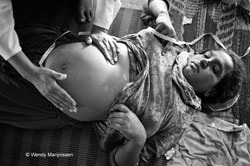
Hamida is a pregnant woman I met over 1.5 months ago in one of the many flood camps in Pakistan. In the final stages of her pregnancy I had the honor to spend lots of time with her and her family and document their life in the camp. Last week she gave birth to a baby boy Rehan Ali and the family is hoping to return to their village very soon to rebuild their lives. More images and in depth coverage on this incredible family can be seen on my website: http://wmarijnissen.photoshelter.com/ gallery/Hamida-work-in-progress/G0000y0lH46v4ZqY/
I met Wendy Marijnissen, 36, a photojournalist from Belgium and was quite intrigued by her story. An aspiring woman looking to capture the truth as it is, she came to Pakistan in Nov. 2009, throwing all caution to the wind that included turning her back on the travel advisory that warned western travelers. She believed in visiting with “an open mind” as the best entrance to a new country. Her mission—to capture through her lens the lives of Pakistani women. “I wanted to portray the Pakistani women, to give to the western audience a different view, which is less clichéd than what people might expect,” she told me. (more…)
Being called a war freak
Posted on November 25, 2010 .
By Fuyuko Nishisato
Journalist and author

Standing (left) by the Unit 731 Museum in Pingfan, near Harbin with daughter and grandson of a Chinese human guunea pig. The daughter discovered her father was arrested and sent to Unit 731 more than sixty after the end of World War ll in 1945. The discovery of his record as anti-Japanese Russian spy was made available to her through the Imperial Japanese Army Kempeitai (Japanese version of Gestapo) records that were discovered in postwar China.
Shocked by sufferings of A-bomb survivors
I have been working in the field of TV journalism for nearly 30 years, mainly for Western television stations covering Japan. During my school education I had learned very little about World War ll and the human suffering caused from that war.
When I covered for the first time the A-bomb survivors of Hiroshima and Nagasaki for a BBC Television documentary, I could not stay in the display room of Peace Memorial Museum much longer than 30 minutes. I felt like I was being suffocated when I faced to their stories and had to get out to take a deep breath. (more…)

